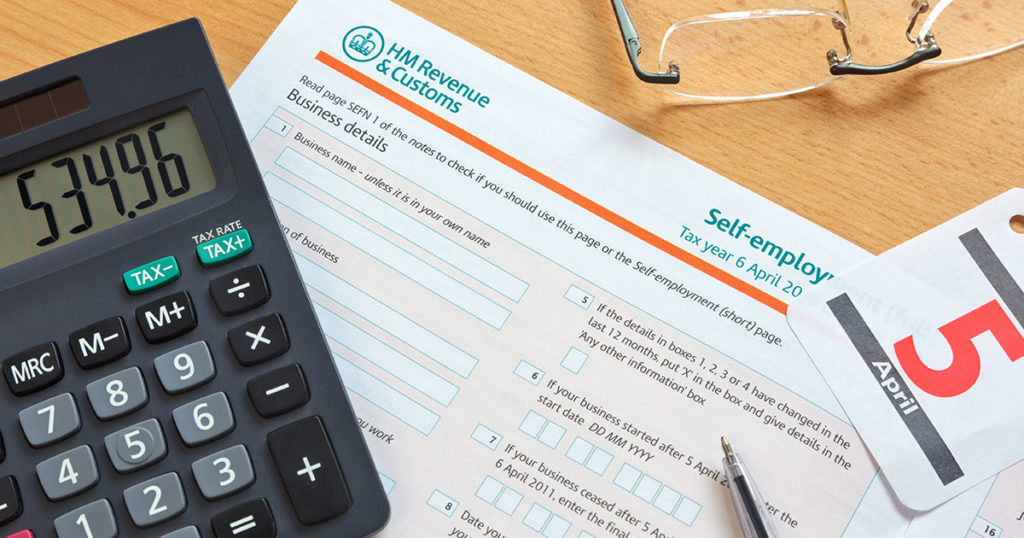
Too busy to keep up with the legal duties of a trade business owner?
We can help!
Working over 40 hours a week, with paperwork to do in your “spare time” it can be tough to find the time to keep up to date with your legal duties. But why risk getting sued and losing it all?
Spend a few minutes reading our concise legal guide for tradesmen starting up. We’ll help you think about what legal responsibilities might affect your business. You can thank us later when everything is set up smoothly and you’re making money…and keeping it!
Here’s your summary…
Sole trader
As a sole trader, you’ll need to:- Open a business bank account. While not a legal obligation, you’ll want to keep your business and personal accounts separate to avoid paying too much or too little tax.
- File your Self-Assessment Tax Return with HMRC.
Limited Company
As a Limited Company, you’ll need to:- Incorporate your company (set it up with Companies House).
- Open a business bank account, a legal obligation.
- File Annual Accounts at Companies House
- File an Annual Tax Return with HMRC along with your financial accounts.
Licenses and accreditations
Whether you’re a sole trader or a Limited Company, you should also consider:- Licenses: make sure you have any licenses or permits required to complete your work.Like, for example, gas engineers, who are required by law to be on the Gas Safe Register or those who handle asbestos need a license from the Health and Safety Executive (HSE). Disposing of commercial waste is likely to need a commercial waste license from your local council. Consider whether your business needs any licenses and avoid fines.
- Accreditations: do you need any accreditations? They’re great for showing homeowners that you have the necessary qualifications to do your job well.
Insurance
Things you’ll need to consider:- Van insurance: a legal obligation.
- Tool insurance: optional but advisable.
- Public liability insurance: optional but advisable.
- Employment liability insurance: a legal obligation.
You’ll need employers’ liability insurance as soon as you become an employer. Otherwise you risk facing fines of around £2,500 per day. Ouch! Be sure to display the certificate in your workplace too.
Legal considerations when employing staff

- Legal right to work in the UK: make sure that all employees are legally allowed to work in the UK. You can find more information on which documents to look at here.
- DBS Checks: if you work on sites where one is required to work around vulnerable groups of people or with sensitive information, e.g. schools or hospitals, make sure that all staff members have a DBS (Criminal Records) check.
- Health and Safety: are you meeting your responsibilities under the Health and Safety at Work Act (HSWA)? Make sure you have followed the checklist and keep training records for all employees:
- Have you provided staff with safety equipment and safe systems of work?
- Is equipment properly maintained?
- Are materials properly stored, handled, used and transported?
- Have you provided sufficient instruction, supervision and training to allow staff to undertake their role safely?
- Do you have a written Health & Safety Policy?
- Have you conducted a risk assessment to identify and control potential causes of harm within the workplace?
Employment Rights

- Written statement of employment: while having a written contract of employment is not a legal requirement for staff, you are legally obliged to provide employees with a written statement of employment within 2 weeks of starting.
- Understand the rights of your staff: all employees have rights that are legally protected. There are two main types of employee rights: statutory (given by law) and contractual (given by a specific employment contract). If their rights are not met, they can seek compensation.
- Have an employment contract from their employer (formed when they accept the job).
- Tend to be provided regular work by their employer.
- They are employed to do the work personally and they must do the work.
- A written statement of employment outlining their job rights and responsibilities, as a minimum.
- Sick pay, currently £94.25 a week Statutory Sick Pay (SSP) for up to 28 weeks.
- 28 days holiday pay.
- Parental leave pay including: maternity/paternity/shared parental leave or adoption leave.
- Pay slips.
- Protection against unlawful discrimination and ‘whistleblowing’.
- Not being treated less favourably if you work part time.
- Being able to claim redundancy and unfair dismissal after 2 years’ service.
Tax requirements when employing staff

Make sure your business is registered for tax. If you’re a sole trader register here. If you’re a limited company register here.
Registering with the HMRC
Register as an employer with the HM Revenue and Customs (HMRC) and receive email reminders, notices or alerts. You can do this up to 30 days after you pay your new staff but don’t miss the deadline as you could incur a fine!- Tax Records: have to be kept for six years so keep them save and easily accessible.
- Pay and other costs
Payroll
Every time you pay your employees, there are legal requirements to do certain things so use payroll software to:- Record their pay: include their salary or wages and any other pay. Remember you’ll need to pay your employee at least the National Minimum Wage which is different form apprentices.
- Calculate deductions from their pay, like tax and National Insurance.
- Calculate the employer’s National Insurance contribution: currently you’ll need pay 12% of earnings above the government defined threshold.
- Produce pay slips for each employee: you can use different software if payroll software does not have this feature.
- Report their pay and deductions to HMRC in a Full Payment Submission (FPS).
- Pay Statutory Sick Pay1: if the employee is off sick, they are entitled to £94.251 per week for up to 28 weeks (at the time of writing).
- Document Sick Pay, Holidays and any other holidays in pay slip
Pensions
To keep on the right side of the law be sure to enroll and make an employer’s contribution for all staff who:- Are aged between 22 and the State Pension age;
- Earn at least £10,000 a year;
- Normally work in the UK (this includes people who are based in the UK but travel abroad for work
- For more guidance on this check if you need toautomatically enroll your staff into a workplace pension scheme.
Get help with meeting your legal obligations
It’s not easy staying on top of all things legal! From accounting and tax obligations to keeping update with the law, there’s a lot to remember.
It pays to diary key dates for tax documents, insurance renewal dates and set yourself annual reminders in your calendar. Keep your eye on changes in employment law, especially minimum wages changes that are generally updated bi-annually in April and October each year.
Joining a trade association can be a good way of getting help and advice to understand your responsibilities. Some will email you to inform you of legal updates that affect your industry and offer legal advice lines and help with disputes to their members!
Questions
It pays to diary key dates for tax documents, insurance renewal dates and set yourself annual reminders in your calendar. Joining a trade association can be a good way of getting help and advice to understand your responsibilities. Some will email you to inform you of legal updates that affect your industry and offer legal advice lines and help with disputes to their members!
What you’ll need to do: Open a business bank account (not a legal obligation but you’ll want to keep your business and personal accounts separate to avoid paying too much /too little tax). File your Self-Assessment Tax Return with HMRC. Check any licences or permits required to complete your work.
What you’ll need to do: Incorporate your company (set it up with Companies House); Open a business bank account (legal obligation); File Annual Accounts at Companies House; File an Annual Tax Return with HMRC along with your financial accounts. Check any licences or permits required to complete your work.
Van insurance: Legal Obligation, Tool Insurance: Optional but advisable, Public Liability Insurance: Optional but advisable and Employment Liability Insurance: Legal Obligation. You’ll need employers’ liability insurance as soon as you become an employer. Otherwise you risk facing fines of around £2,500 per day. Ouch! Be sure to display the certificate in your workplace too.
Legal Right to work in the UK. DBS Checks. Health and Safety. Understand employment rights.
An employee has the rights to:
A written statement of employment outlining their job rights and responsibilities, as a minimum , sick pay, currently £94.25 a week Statutory Sick Pay (SSP) for up to 28 weeks, 28 days holiday pay, parental leave pay including: maternity/paternity/shared parental leave or adoption leave, pay slips, protection against unlawful discrimination and ‘whistleblowing’, not being treated less favourably if you work part time, being able to claim redundancy and unfair dismissal after 2 years’ service.
Make sure your business is registered for tax. Registering with the HMRC. To register as an employer with the HM Revenue and Customs (HMRC) once you do this they then send you email reminders, notices or alerts. You can do this up to 30 days after you pay your new staff but don’t miss the deadline as you could incur a fine! Tax Records have to be kept for six years so keep them save and easily accessible.
Every time you pay your employees, use payroll software to record their pay, calculate deductions from their pay, like tax and National Insurance, produce pay slips for each employee. You’ll also need to report their pay and deductions to HMRC in a Full Payment Submission (FPS). Document Sick Pay, Holidays and any other holidays in pay slips.
Be sure to enroll and make an employer’s contribution for all staff who: are aged between 22 and the State Pension age; earn at least £10,000 a year; and normally work in the UK. Check if you need to automatically enroll your staff into a workplace pension scheme.

